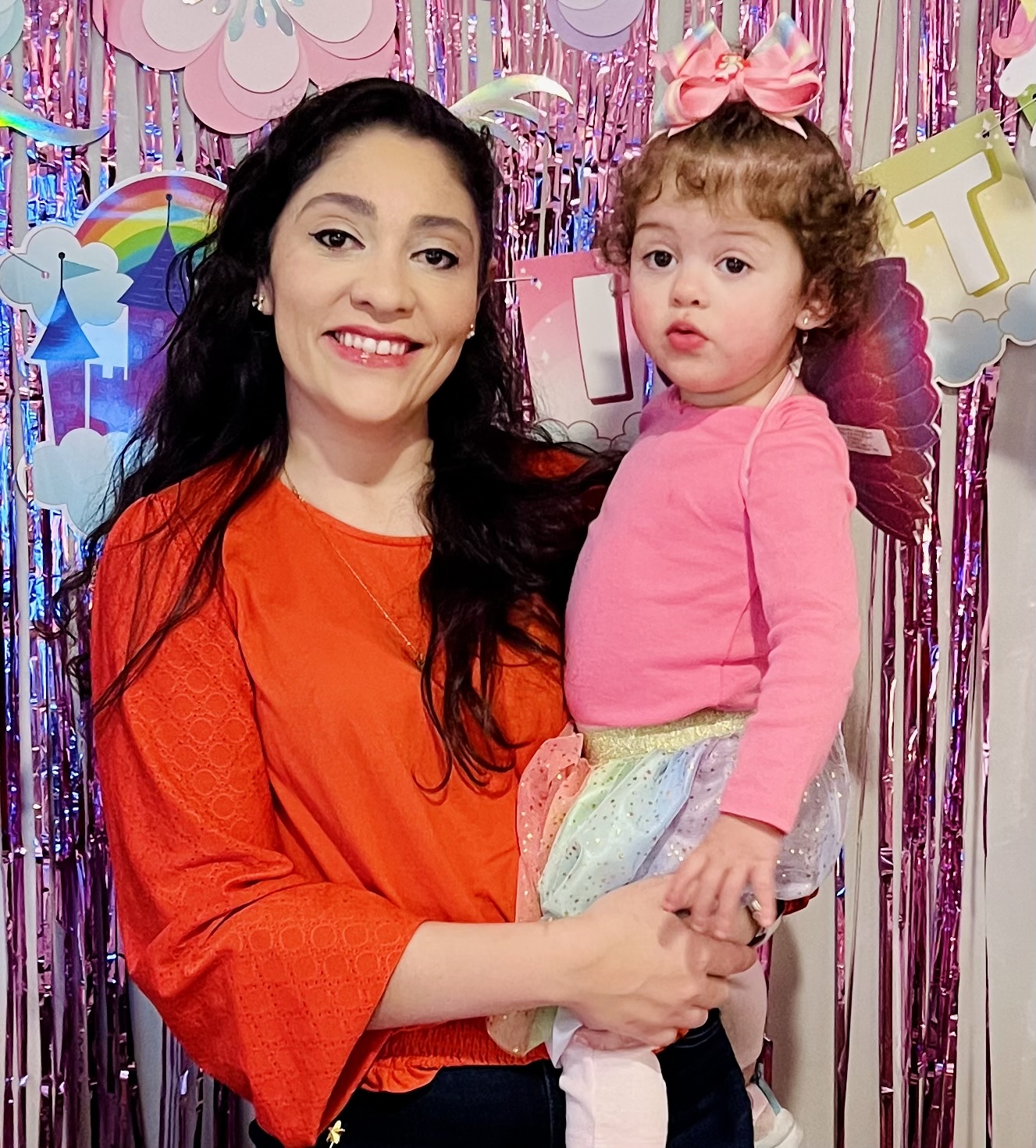
Jun 23, 2025
At first glance, crocheting and researching nanobiotechnology may not seem like they have a lot in common. However, Georgia Tech Postdoctoral Fellow Vanessa Dartora found an unexpected thread that links two of her passions.
“Both require patience, attention to detail, and the ability to follow complex patterns. Thankfully, dropped stitches are much easier to fix than failed experiments,” said Dartora.
For Dartora, crocheting is the perfect counterbalance to the analytical nature of her research work. Her path to the field of nanobiotechnology was shaped both by personal experience and scientific curiosity.
Early Career Sparked by Firsthand Clinical Insight
Dartora earned a B.S. in Pharmaceutical Sciences in Brazil followed by an M.S. and Ph.D. in Pharmacology from the Institute of Biomedical Sciences at the University of São Paulo.
Early in her career, she worked as a pharmacist in oncology settings.
“This clinical exposure showed me firsthand how treatments that work well for some patients fail others, particularly across different populations,” said Dartora.
A Transformative Experience in California
During her doctoral studies, Dartora completed a one-year research internship at the University of California-Davis as a visiting scholar through the Research Internships Abroad program, where she conducted research under the guidance of Dr. Alyssa Panitch.
“That experience was transformative,” said Dartora. “It opened my eyes to the potential of regenerative medicine and biomaterials beyond traditional drug delivery.”
She became fascinated by the precision that nanotechnology could offer and realized this was where she wanted to focus her career.
Pursuing Health Equity Through Nanotechnology
“When I began analyzing how these cellular responses differ between individuals with varying skin tones, I realized this field could address fundamental health disparities that have persisted for decades,” said Dartora.
Before coming to Tech, Dartora conducted postdoctoral research at University of California-Davis, where she focused on enhancing wound healing technologies through the Stem Cell and Gene Therapy Training Program. When Panitch later joined Georgia Tech as department chair in the Wallace H. Coulter Department of Biomedical Engineering, Dartora saw an opportunity continue building what she had started during her earlier time in Panitch’s lab.
I saw an incredible opportunity to continue this research trajectory while joining one of the premier biomedical engineering programs in the world.
Fellowship Fuels Ambitious Research Vision
Dartora applied for and was awarded the prestigious Presidential Postdoctoral Fellowship, “which specifically emphasizes diversity, equal opportunity, and faculty mentoring,” according to Dartora.
“This fellowship recognition validated my research vision and provided the support I needed to transition to Georgia Tech,” said Dartora. “Being here has allowed me to expand into new areas while building the foundation for my future lab that will integrate engineering, biology, and social impact in nanobiotechnology and personalized regenerative medicine.”
For Dartora, the Coulter department’s “collaborative environment, emphasis on translational research, and Tech’s commitment to diversity” aligned perfectly with her goals of developing technologies that address health disparities.
Engineering Biomaterials with Real-World Impact
Dartora’s current research focuses on developing biomaterials that help stimulate the body’s natural healing abilities particularly for people who have historically been overlooked by traditional medical approaches. She’s engineering materials that influence how certain cells release healing signals, with the aim of improving skin regeneration and blood vessel growth in patients of diverse backgrounds.
Balancing Research, Mentorship, and Lab Life
Her days typically starts early in the morning when she focuses on reviewing data from previous experiments and writing manuscripts, grant proposals, or details experimental protocols. She also handles administrative tasks that keep the lab running smoothly. Her afternoons are primarily hands-on in the lab running experiments, whether it’s cell culture work, material synthesis, or sample characterization. She spends significant time training new students and mentoring undergraduate and graduate students. When she’s not actively experimenting, she’s analyzing datasets or preparing figures for manuscripts.
“What I love about this balance is how it combines independent research with mentorship and leadership responsibilities,” said Dartora. “Every day requires me to think both strategically about my research program and tactically about immediate experiment needs.”
Life Beyond the Lab: Family, Hobbies, and Libraries
Outside of the lab, Dartora loves to spend time at home with her family and working on her hobbies like crotcheting. Her 2-year-old daughter helps keep Dartora busy.
Balancing research with motherhood has been both challenging and incredibly rewarding,” said Dartora. It has taught me to be even more efficient with my time and has given me a deeper appreciation for the impact my work could have on future generations.
She’s grateful to be raising her daughter in Atlanta, especially for its family-friendly environment.
“One of my favorite activities is exploring different playgrounds with my daughter and our dog,” said Dartora. “Atlanta has so many wonderful parks and outdoor spaces that are perfect for families.”
Atlanta has also become a great way for Dartora to share her passion for learning and reading with her daughter.
“I’m really impressed by Atlanta’s public library system,” said Dartora. “We love visiting different libraries, especially those with dedicated kids’ areas. It’s one of my favorite ways to introduce my daughter to something I’m passionate about–reading and learning. The libraries here are such welcoming spaces for families, and I appreciate how they foster a love of learning from such an early age.”
For Dartora, both science and parenting are deeply personal acts of hope. Through her research and her role as a mother, Dartora is weaving together a future where science serves everyone.